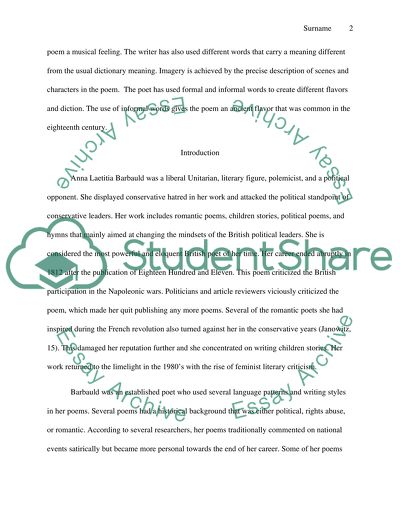Cite this document
(“Analysis of Anna Barbauld Essay Example | Topics and Well Written Essays - 4000 words”, n.d.)
Retrieved from https://studentshare.org/literature/1401172-write-analysis-research-paper-about-the-ann
Retrieved from https://studentshare.org/literature/1401172-write-analysis-research-paper-about-the-ann
(Analysis of Anna Barbauld Essay Example | Topics and Well Written Essays - 4000 Words)
https://studentshare.org/literature/1401172-write-analysis-research-paper-about-the-ann.
https://studentshare.org/literature/1401172-write-analysis-research-paper-about-the-ann.
“Analysis of Anna Barbauld Essay Example | Topics and Well Written Essays - 4000 Words”, n.d. https://studentshare.org/literature/1401172-write-analysis-research-paper-about-the-ann.


